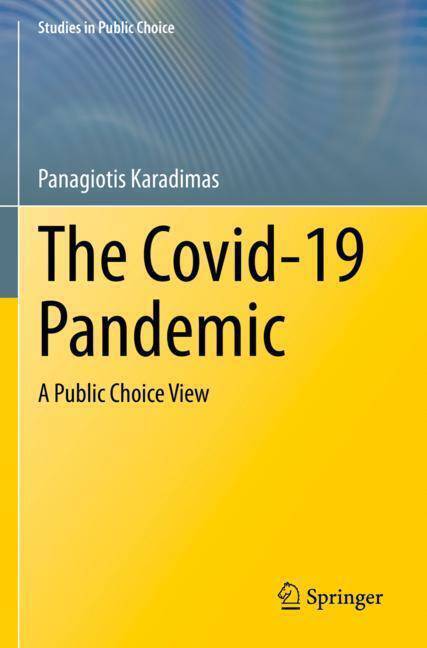
- Retrait gratuit dans votre magasin Club
- 7.000.000 titres dans notre catalogue
- Payer en toute sécurité
- Toujours un magasin près de chez vous
- Retrait gratuit dans votre magasin Club
- 7.000.0000 titres dans notre catalogue
- Payer en toute sécurité
- Toujours un magasin près de chez vous
Description
This monograph evaluates public policy responses to the Covid-19 pandemic through a public choice lens. The book compares two prominent, albeit mutually exclusive, theories in social sciences--public interest theory and public choice theory--and explores how their predictions perform within the framework of the Covid-19 pandemic. The chapters present different pandemic policies alongside empirical data in order to draw conclusions about their efficacy, and, in turn, draw conclusions about the veracity of each theory. By the end of the volume, the reader will be able to draw their own conclusions about whether the pandemic policy responses served the public interest, as public interest theory suggests, or the personal interests of the politicians who implemented them, as public choice theory holds.
Spécifications
Parties prenantes
- Auteur(s) :
- Editeur:
Contenu
- Nombre de pages :
- 134
- Langue:
- Anglais
- Collection :
- Tome:
- n° 42
Caractéristiques
- EAN:
- 9783031249693
- Date de parution :
- 11-02-24
- Format:
- Livre broché
- Format numérique:
- Trade paperback (VS)
- Dimensions :
- 156 mm x 234 mm
- Poids :
- 213 g

Les avis
Nous publions uniquement les avis qui respectent les conditions requises. Consultez nos conditions pour les avis.






